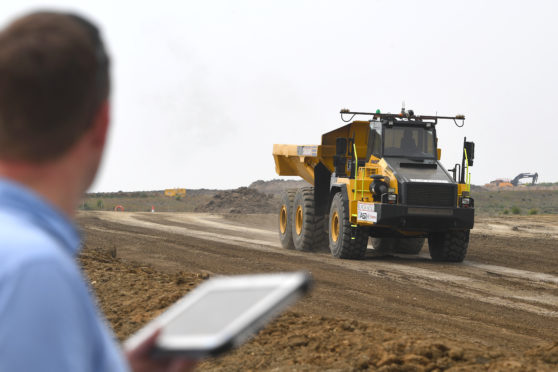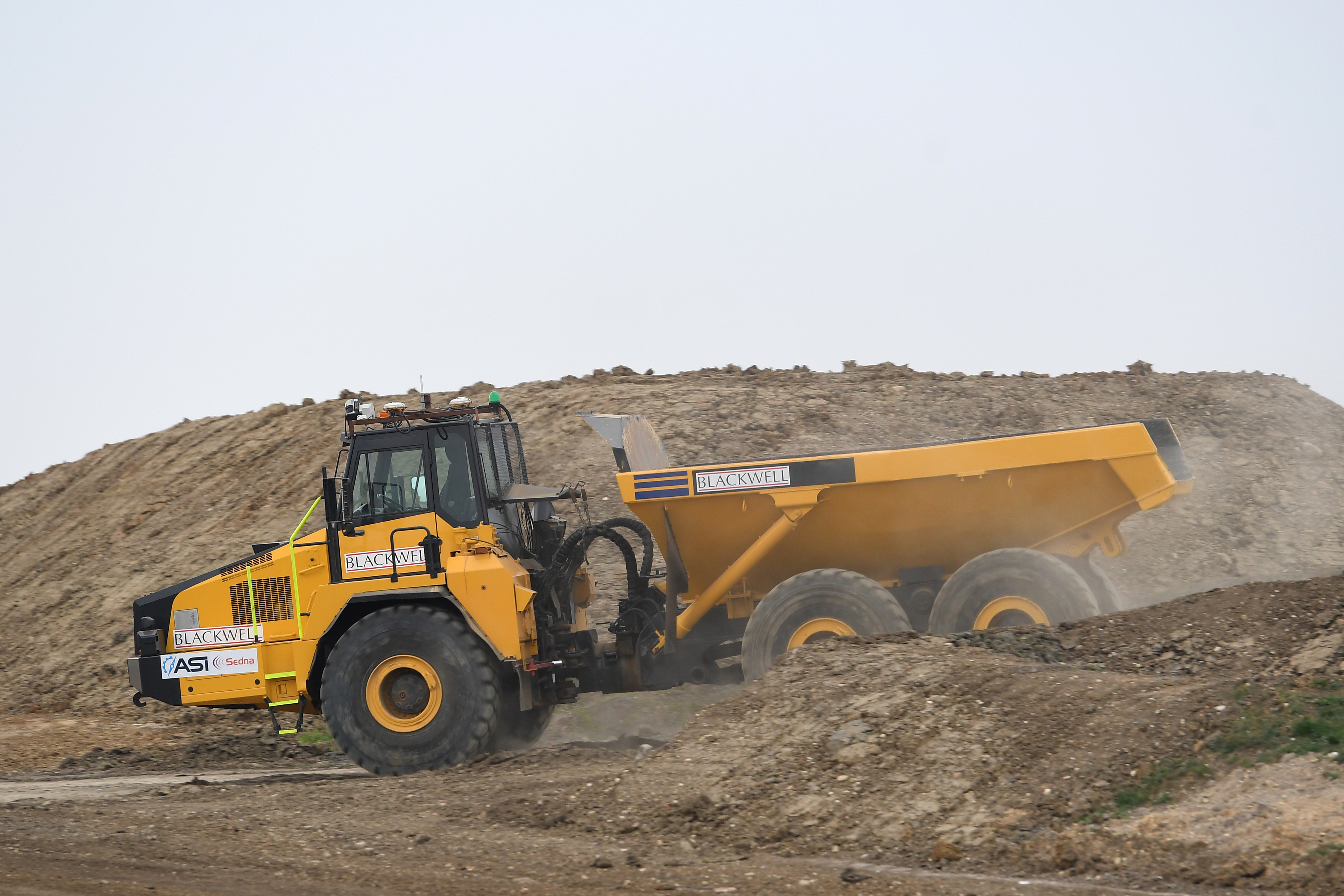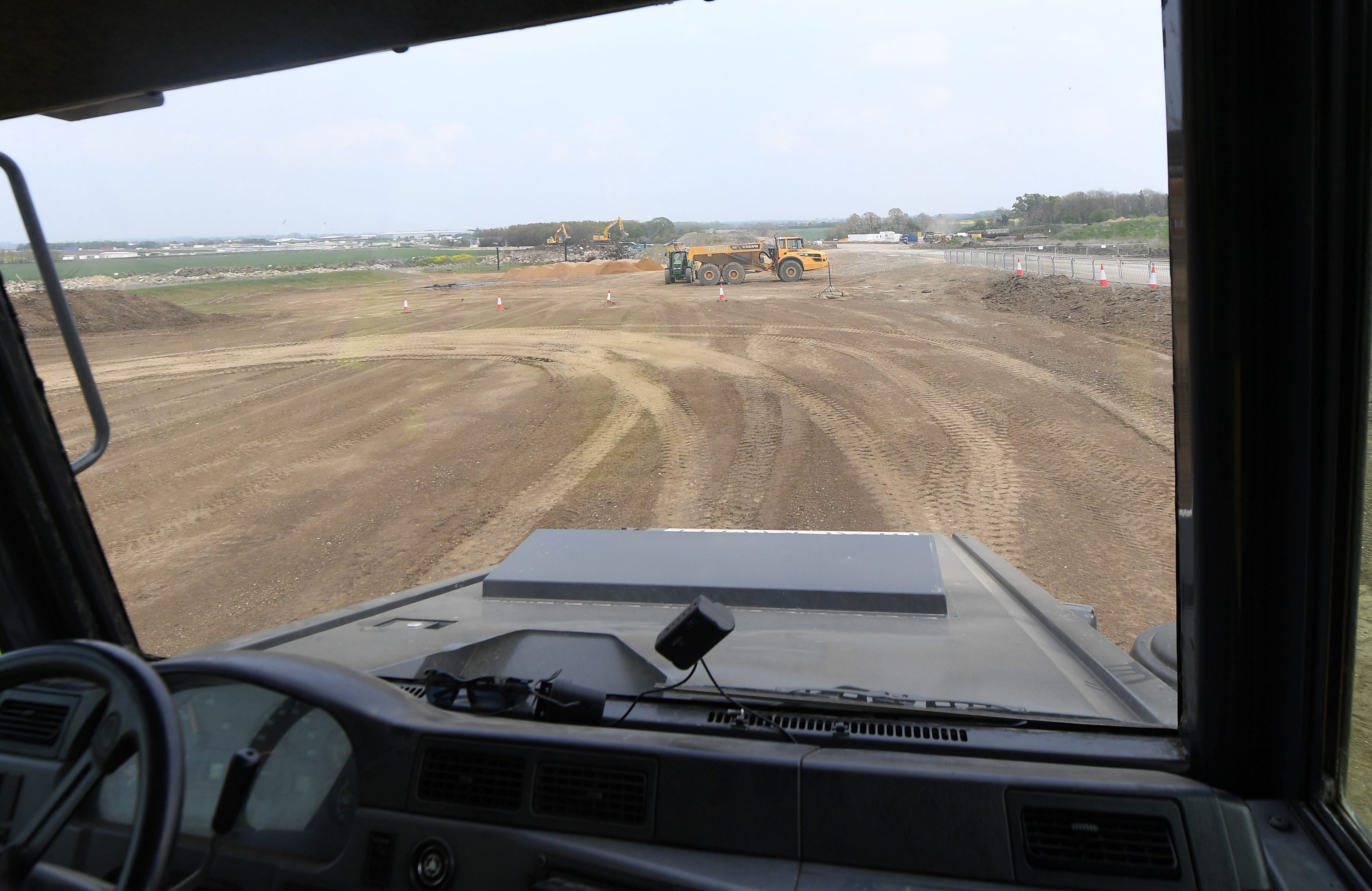
A self-driving 25-tonne dumper truck is being trialled in a bid to speed up UK roadworks.
The vehicle, which can carry a 40-tonne load, has been fitted with gadgets originally developed for autonomous trucks in Australian mines, including a laser light unit to spot objects in its way.
It is being tested off the A14 in Cambridgeshire where work is under way to upgrade a 21-mile (34km) stretch of the road between Cambridge and Huntingdon.
It is hoped that autonomous trucks could be developed to operate round the clock, meaning work is finished faster.
Dumper trucks are used to move excavated earth, with around 10 million cubic metres moved by 200 dumper trucks during the A14 upgrade.
Julian Lamb, deputy project director on behalf of Highways England for the A14, said that a shortage of drivers prompted the trial.
“It’s not to replace drivers but it’s to be able to respond to the capacity that we will need,” he said.
He added that there was “no reason why autonomous vehicles couldn’t work 24 hours per day” and that the technology could make sites safer for workers by keeping people away from machines.

The roof of the truck is fitted with a GPS tracker, wifi receiver and laser light unit.
When switched to autonomous mode it is controlled by computers, with the steering wheel motionless as it rounds corners.
Fiona McDonald, project manager with Highways England, said she hoped the technology could be “fast-tracked” into use as safety regulations have been developed in Australia where similar trucks are in use in mines.
“We’re not starting from scratch,” she said. “This stuff’s been done before.”
However she said it would be the first time autonomous trucks have been used in roadworks anywhere in the world.
Richard Austin, who works for earth moving subcontractor CA Blackwell, is from Australia and suggested using the technology for roadworks projects.
He said the price of sensors has reduced due to investment by the automotive industry to automate cars, and some Australian mines are fully automated.

There would be a “hierarchy of controls” to ensure safety, he said, including precision mapping to within 25mm so a truck “just cannot wander off” and strictly controlled sites.
“Lastly, if everything else fails, if somebody’s ignored all of your controls and come into your work zone, if everything else has failed, then the truck itself can still see, it can observe what’s going on around it, detect an obstacle that shouldn’t be there and it can stop,” he said.
The one truck being tested has been fitted with old research gadgets developed seven years ago.
It is expected to take two to three years before autonomous trucks could be in full operation.
This means they will not be used on the A14 project, due to finish by the end of 2020, but may be used on future projects like the Lower Thames Crossing and improvements to the A303 near Stonehenge.
Highways England has committed £150,000 from its innovation designated fund into the A14 dump truck trial.

Enjoy the convenience of having The Sunday Post delivered as a digital ePaper straight to your smartphone, tablet or computer.
Subscribe for only £5.49 a month and enjoy all the benefits of the printed paper as a digital replica.
Subscribe